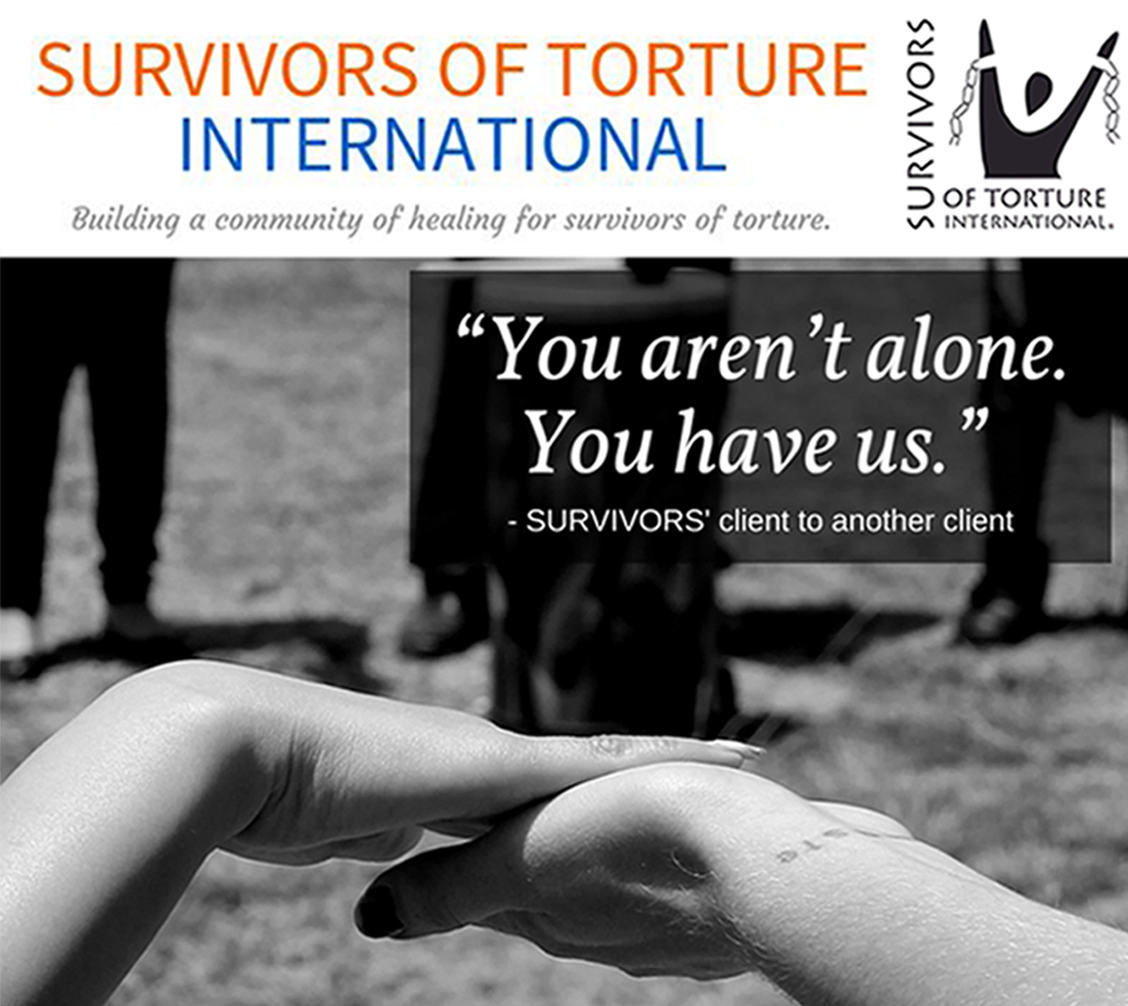By Victoria Scalo

I became acquainted with Survivors of Torture International through San Diego State University’s Board Fellows Program, which is partnered with the Joan B. Kroc School of Peace Studies at the University of San Diego. The Board Fellows Program pairs up San Diego State Masters in Social Work (M.S.W.), Masters in Business Administration (M.B.A.), Kroc School graduate students, and matches them with a local San Diego nonprofit where they assist their organization with a year-long project. I applied to become a Board Fellow because I was curious to know what a nonprofit board does to maintain their organization. I also saw this as an excellent opportunity to gain experience working with a nonprofit. As a non-voting honorary board member, I was able to attend and observe Survivors’ monthly board meetings. My M.S.W. partner and I helped revise Survivors’ employee handbook so that it was up-to-date with California employment law. We also drafted a list for a COVID-19 addendum for the next pair of Board Fellows to work on. When the time came to apply for an internship, I knew I wanted to return to Survivors. Here is what I learned during my summer internship.
1. Take unexpected events as they come.
Multitasking is a necessary skill for working in a nonprofit because there will be times where you will have to leave one project to work on another. I was in the middle of working on Survivors’ print newsletter for the Community Relations Department when the San Diego County Grant application was released. I found myself having to quickly switch to assisting the Grants Department by researching information for and writing a literature review to include in Survivors’ proposal application. Even though I did not like leaving the newsletter unfinished, I am happy and satisfied knowing that I played a role in this proposal and that Survivors’ programs will benefit financially to continue providing the services torture survivors need. Despite the time crunch, I was able to complete the literature review on time to be added into the larger proposal application.
2. Staying organized will help you while working on your projects.
Keep all of your scholarly articles and other information organized in a separate document. I am so glad that I made a working outline for the San Diego County Grant literature review. I was able to organize the important services Survivors provides to its clients, I then added the appropriate information. From there, I wrote the literature review. Keeping your information organized will save yourself a lot of time in looking for things and figuring out which pieces of information will go in a literature review, report, program design description, grant, etc.
3. Familiarize yourself with the work you want to do in your career.
I will pursue a career as a Communications Associate when I graduate from the Kroc School. Communication Associates work with social media, create newsletters, write blogs, and maintain a nonprofit’s website. This work is necessary so that a nonprofit can keep its supporters and stakeholders engaged with their work. I worked on projects for Survivors’ Community Relations Department because I wanted to gain experience working with the Adobe Cloud programs, social media, as well as writing newsletters and blogs. Writing a newsletter was a challenging experience because I had to shift from academic writing to a form of writing that was more casual. I made sure that what I wrote reflected the authentic voice of Survivors and not my own. Using Adobe InDesign, Photoshop, and Premier Pro took some trial and error to learn how to use them. I designed a print newsletter template, edited a video, and edited the new e-newsletter header image. I created a new e-newsletter template using the Emma email service. I used Canva to reformat a photo of Survivors’ logo to edit it in Photoshop. I posted content to Survivors’ Twitter, Facebook, Instagram, and YouTube profiles to engage their supporters by keeping them up-to-date with organizational updates.

4. I learned a lot more about advocacy work for immigrants and refugees.
I had taken courses at the Kroc School that dealt with human rights law, human rights advocacy, as well as immigration and asylum law. I learned so much valuable information from these courses, however there was still a lot for me to learn about governmental advocacy. During my internship I got to see first hand how Survivors’ Governmental Affairs Department advocates for county, state, and national policies that benefit their clients and the refugee communities of San Diego County. When I began doing research to assist the Governmental Affairs Department as they prepared for a new cycle of advocacy, I realized that there is a lot of work that goes into advocating for immigrants and refugees. Advocates have to know which local, state, and national governmental elected officials will be supportive of immigration and refugee policies. Advocates will meet with, more often the office representatives, of these elected officials to discuss why particular policies would benefit immigrants and refugees. I sat in a Zoom meeting with Survivors’ Governmental Affairs Department Manager, Clint Carney, and a representative from Diane Feinstein’s office. It was a great experience seeing Clint advocate so eloquently. I am glad that my work will help Survivors to advocate for their clients and the refugee communities living in San Diego County.
Despite my internship being online, I had an enriching and fulfilling experience. I felt nervous and unsure of my abilities at the beginning of this internship. I was worried about “not getting things right” and that my work would not be “good enough.” I am grateful for the advice and guidance that I received from my supervisor, Katrina Pimental, Governmental Affairs Manager, Clint Carney, Grants Manager, Elena McCollum, and Community Engagement Coordinator, Andrew Worth. I deeply appreciate their knowledge and experience which they so graciously shared with me. My confidence has grown and I feel more confident as an individual as I continue with my education and in the pursuit of my future career.
